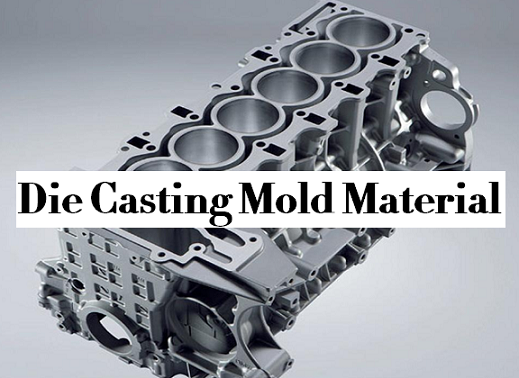Stahl Specialty Company Can Be Fun For Anyone
Stahl Specialty Company Can Be Fun For Anyone
Blog Article
Not known Factual Statements About Stahl Specialty Company
Table of ContentsUnknown Facts About Stahl Specialty CompanyStahl Specialty Company Can Be Fun For EveryoneSome Known Incorrect Statements About Stahl Specialty Company The Ultimate Guide To Stahl Specialty CompanyAll About Stahl Specialty Company
The refined difference lies in the chemical web content. Chemical Contrast of Cast Light weight aluminum Alloys Silicon promotes castability by minimizing the alloy's melting temperature and improving fluidness throughout casting. It plays a critical duty in enabling detailed mold and mildews to be filled accurately. Additionally, silicon adds to the alloy's strength and use resistance, making it useful in applications where toughness is vital, such as automobile parts and engine components.It additionally boosts the machinability of the alloy, making it simpler to refine into finished products. In this way, iron adds to the overall workability of light weight aluminum alloys.
Manganese adds to the stamina of aluminum alloys and enhances workability. Magnesium is a light-weight aspect that supplies toughness and influence resistance to light weight aluminum alloys.
Zinc improves the castability of aluminum alloys and helps manage the solidification procedure during casting. It improves the alloy's stamina and solidity.
What Does Stahl Specialty Company Mean?
Due to the fact that aluminum-silicon alloys have great spreading properties, high gas buildings, basic processes, and excellent rust resistance, aluminum-silicon alloys are most typically used in the die-casting industry at home and abroad. At the very same time, aluminum-silicon alloys are also relatively very early and extensively identified alloys created and utilized in die-casting. After continuous study and renovation, many of the current global mainstream aluminum-silicon alloys have been settled and are nothing even more than A356, A360, A380, ADC12, B390, and A413.
The primary thermal conductivity, tensile strength, yield toughness, and elongation vary. Select ideal basic materials according to the efficiency of the target item generated. Amongst the above alloys, A356 has the greatest thermal conductivity, and A380 and ADC12 have the least expensive. The tensile limit is the opposite. A360 has the most effective return stamina and the greatest prolongation rate.

Not known Facts About Stahl Specialty Company
In precision spreading, 6063 is appropriate for applications where elaborate geometries and premium surface coatings are critical. Instances consist of telecommunication rooms, where the alloy's premium formability allows for streamlined and cosmetically pleasing designs while maintaining structural stability. Likewise, in the Lights Solutions industry, precision-cast 6063 components produce stylish and efficient illumination view publisher site fixtures that need elaborate shapes and excellent thermal efficiency.
(https://issuu.com/stahlspecialc)
It brings about a better surface coating and better deterioration resistance in A360. Additionally, the A360 exhibits exceptional prolongation, making it optimal for complicated and thin-walled components. In precision spreading applications, A360 is appropriate for industries such as Customer Electronic Devices, Telecommunication, and Power Devices. aluminum foundry. Its enhanced fluidness permits detailed, high-precision elements like mobile phone coverings and interaction tool real estates.

In accuracy spreading, aluminum 413 shines in the Consumer Electronic Devices and Power Tools industries. This alloy's remarkable corrosion resistance makes it an outstanding selection for outside applications, guaranteeing resilient, sturdy products in the discussed sectors.
Getting The Stahl Specialty Company To Work
When you have made a decision that the light weight aluminum die casting procedure is ideal for your task, a crucial following action is choosing one of the most appropriate alloy. The light weight aluminum alloy you choose will significantly affect both the casting process and the residential properties of the end product. As a result of this, you should make your decision thoroughly and take an enlightened method.
Identifying the most suitable aluminum alloy for your application will suggest considering a vast array of features. The initial category addresses alloy features that impact the manufacturing process.
The alloy you choose for die spreading directly influences several aspects of the spreading process, like just how simple the alloy is to work with and if it is vulnerable to casting defects. Hot cracking, also called solidification breaking, is a normal die spreading flaw for aluminum alloys that can cause inner or surface-level tears or splits.
What Does Stahl Specialty Company Mean?
Particular light weight aluminum alloys are a lot more at risk to hot breaking than others, and your selection needs to consider this. One more usual flaw located in the die casting of light weight aluminum is die soldering, which is when the actors stays with the die wall surfaces and makes ejection hard. It can harm both the actors and the die, so you need to look for alloys with high anti-soldering residential or commercial properties.
Corrosion resistance, which is already a remarkable characteristic of light weight aluminum, can vary considerably from alloy to alloy and is a vital particular to take into consideration depending upon the ecological problems your product will certainly be exposed to. Use resistance is an additional building typically looked for in light weight aluminum products and can distinguish some alloys.
Report this page